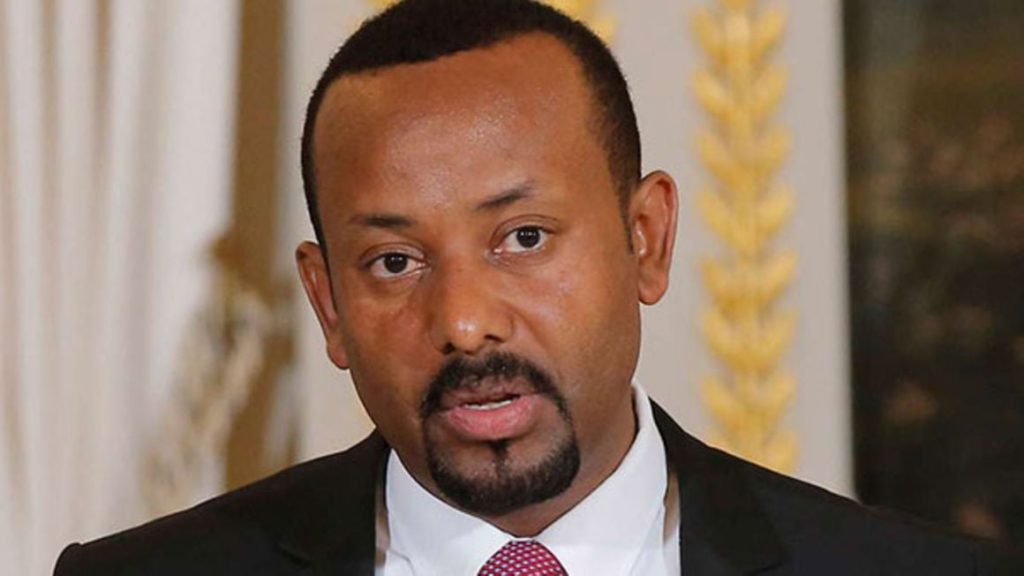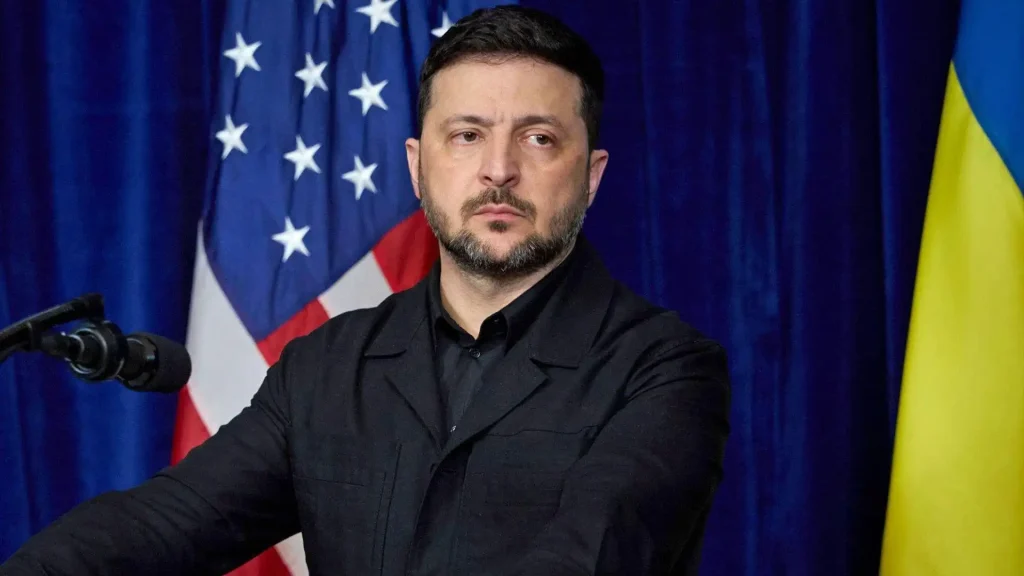accusations emerged against Eritrean troops for their involvement in the abduction of farmers and the theft of livestock in Ethiopia’s Tigray region. These reports, based on assessments by U.N. agencies and non-governmental organizations, came 15 months after a cease-fire ended the brutal two-year conflict between the Ethiopian government and the Tigray People’s Liberation Front (TPLF). Despite the agreement for Eritrean forces to withdraw, incidents of human rights violations continue to be reported in border areas.
This development sheds light on the complex post-conflict challenges in the Horn of Africa, where Eritrean forces had played a significant role during the civil war. The alleged activities of Eritrean troops raise questions about the security situation in Tigray, the compliance of the peace agreement, and the long-lasting impact of the war on civilian life in the region.
Historical Context: The Tigray Conflict
The Tigray conflict, which began in November 2020, stemmed from longstanding political tensions between the Ethiopian federal government, led by Prime Minister Abiy Ahmed, and the TPLF, which had dominated Ethiopian politics for nearly three decades. The conflict saw a devastating humanitarian crisis unfold, with hundreds of thousands killed and millions displaced.
Eritrea, a neighboring country with a complex historical relationship with both Ethiopia and Tigray, entered the conflict as a key ally of the Ethiopian government. Eritrean forces played a significant role in the war, supporting Ethiopian troops in their efforts to defeat the TPLF. Throughout the conflict, there were numerous reports of atrocities committed by both sides, including mass killings, sexual violence, and the destruction of infrastructure.
By November 2022, under international pressure, particularly from the African Union, a peace agreement was signed to end the fighting. One of the key stipulations of this agreement was the withdrawal of Eritrean forces from Tigray. However, reports indicate that Eritrean troops have not fully complied with this condition, and their continued presence in the region has led to allegations of human rights abuses, including the recent claims of abductions and livestock theft.
The Allegations: Abductions and Livestock Theft
The recent accusations against Eritrean troops involve the abduction of Ethiopian farmers and the theft of hundreds of livestock in the Tigray region. These incidents reportedly occurred in two districts near the border with Eritrea. An aid memo dated January 31, 2024, compiled by the Ethiopia Health Cluster, a group of international organizations and local agencies, provided the basis for these claims.
According to the memo, Eritrean soldiers targeted rural farming communities, taking farmers from their homes and stealing livestock, which are a critical source of livelihood for many in the region. The theft of livestock is not only a personal economic loss but also exacerbates food insecurity in a region still reeling from the effects of war. For communities that depend on cattle, goats, and other livestock for survival, these actions have severe and far-reaching consequences.
The memo described several incidents of forced abductions, with farmers being taken across the border into Eritrea. While the exact motivations behind these abductions remain unclear, some reports suggest that Eritrean forces may be targeting individuals they suspect of having ties to the TPLF. Other sources indicate that the actions are part of a broader effort to assert control over strategic areas along the border.
Eritrea’s government, for its part, has denied the allegations. Eritrea’s information minister dismissed the reports as “false,” claiming that Eritrean troops were no longer involved in active operations in Tigray. However, the presence of Eritrean forces in the region has been well-documented, and their involvement in post-conflict abuses has been a consistent point of contention.
The Impact on Tigray’s Recovery
The alleged actions of Eritrean troops have far-reaching implications for Tigray’s recovery from the war. Tigray’s economy, already devastated by the conflict, relies heavily on agriculture, with livestock playing a central role in rural livelihoods. The theft of livestock disrupts local food systems, worsens poverty, and undermines efforts to rebuild.
Furthermore, the abduction of farmers creates a climate of fear and insecurity in the region. Many farmers, who have already endured the hardships of war, are now living in constant fear of being targeted by Eritrean forces. This sense of insecurity makes it difficult for displaced populations to return to their homes and for agricultural production to resume at pre-conflict levels.
In addition to the economic toll, these incidents are exacerbating tensions between Tigrayan communities and Eritrean forces. The continued presence of Eritrean troops in the region, despite the cease-fire agreement, undermines trust in the peace process and casts doubt on the willingness of all parties to comply with the terms of the agreement.
International Reactions and Diplomatic Implications
The international community has taken notice of the ongoing situation in Tigray, with calls for Eritrean forces to fully withdraw from the region. Humanitarian organizations and foreign governments have condemned the alleged abductions and livestock theft, urging the Eritrean government to respect the cease-fire agreement and halt any further violations of human rights.
The African Union, which played a crucial role in brokering the peace deal, has expressed concern over the continued involvement of Eritrean troops in Tigray. In recent months, there have been diplomatic efforts to ensure the full implementation of the peace agreement, but the situation remains fragile.
The United Nations and various NGOs have also highlighted the importance of accountability for human rights violations committed during and after the conflict. There are growing calls for independent investigations into the actions of all parties involved in the war, including Eritrean forces. The possibility of war crimes charges has been raised, with international legal bodies exploring avenues to hold perpetrators accountable.
Eritrea’s Role in the Tigray Conflict: A Complicated Relationship
Eritrea’s involvement in the Tigray conflict is rooted in its long-standing enmity with the TPLF. During Ethiopia’s civil war in the 1980s and early 1990s, the TPLF was a key player in the coalition that overthrew the Marxist Derg regime, which had supported Eritrea’s independence struggle. However, tensions soon arose between the TPLF-dominated Ethiopian government and Eritrea, culminating in a brutal border war between 1998 and 2000.
When Abiy Ahmed became Ethiopia’s prime minister in 2018, one of his first major foreign policy achievements was the signing of a peace agreement with Eritrea, ending two decades of hostility. This agreement won Abiy international praise, including the Nobel Peace Prize in 2019, but it also laid the groundwork for Eritrea’s involvement in the Tigray conflict. When fighting broke out in 2020 between the Ethiopian government and the TPLF, Eritrea saw an opportunity to settle old scores with its former adversary.
Throughout the war, Eritrean forces were accused of committing numerous atrocities, including mass killings, rape, and the destruction of civilian infrastructure. Despite these allegations, Eritrea remained a key ally of the Ethiopian government, and its forces played a significant role in several major offensives against the TPLF.
Challenges to Peace and Reconciliation
The continued presence of Eritrean troops in Tigray presents a significant obstacle to lasting peace and reconciliation in Ethiopia. While the cease-fire agreement has brought an end to large-scale hostilities, incidents like the abduction of farmers and the theft of livestock highlight the fragility of the peace process. As long as Eritrean forces remain in the region and continue to engage in actions that harm local communities, it will be difficult to achieve true reconciliation.
Moreover, the situation in Tigray is further complicated by the need for post-conflict reconstruction. The region has been devastated by the war, with much of its infrastructure destroyed and its economy in ruins. Humanitarian organizations have warned that without significant international aid and investment, Tigray’s recovery will be slow and difficult.
Rebuilding trust between the various ethnic and political groups in Ethiopia will also be a major challenge. The war has deepened ethnic divisions, not only between Tigrayans and other Ethiopian groups but also between Tigrayans and Eritreans. For peace to take root, efforts must be made to address the grievances of all sides and ensure accountability for the atrocities committed during the conflict.
Conclusion
The accusations against Eritrean troops in Tigray represent a disturbing development in the region’s post-conflict period. The abduction of farmers and theft of livestock not only undermines the peace agreement but also poses serious challenges to Tigray’s economic recovery and the well-being of its people. As the international community continues to push for peace and accountability, it remains to be seen whether Eritrea will fully withdraw its forces and whether justice will be served for the victims of the war.
Ethiopia and Eritrea must work together, with the support of the African Union and other international actors, to ensure that the promises of the cease-fire are fulfilled, and that Tigray can begin the long and difficult process of rebuilding.























